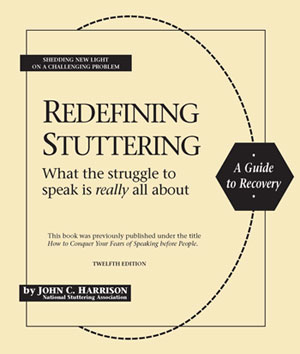Stuttering
Answers
all your speech dysfluency
questions answered
on one site
What Causes Stuttering?
While stuttering has been recorded in history books since man first learned to speak it is still a little know disorder and to date all professionals in this area would have to agree that "the cause of stuttering is still not fully understood". Some research has shown that there appears to be some differences in the brain of a person who stutters while they are producing speech but it is not clear what is causing this. For more information on this see out Stuttering Research section. Stuttering has also been found to have a hereditary aspect in that it tends to run in families and it is not unusual to find a father and his son who stutter or close relatives who also stutter. While some people who stutter report that they do not have stuttering anywhere else in their family, both current and past, what is known is that in mild cases of the disorder, the symptoms can be hidden (see What is Stuttering) and also the propensity to stutter can still be there but had not developed into stuttering. What is generally accepted is that heightened levels of arousal or excitement in children can increase the level of dysfluent speech while perceived stress, uncertainty and anxiety can result in great levels of stuttering in adults. Some parents report that their child began to stutter after certain even. For example falling down stairs or off a bike but while this can be a sometimes traumatic even for certain young children research does not support this as a general cause. Some parents believe that their children started to stutter when they were learning to put sentences together in a situation where there were other children competing for “airtime” who had greater vocal skills. Once again all this is anecdotal evidence at best. What is know is that children and adults who stutter tend to have a higher level of sensitivity than the average and in general have an inherited propensity towards expressing heightened arousal, stress and anxiety in the body through the muscles that produce speech.
|
Stuttering Facts
Stuttering Advice
Stuttering Treatment Centres
Stuttering Treatments
Useful Articles Books, Audio & Video
Videos About Stuttering
Stuttering Support Groups
Stuttering News Articles
Stuttering Research
Discussion Forums
Conferences & Events
|
Copyright (c) 2011 - All Right Reserved - Stuttering Answers

